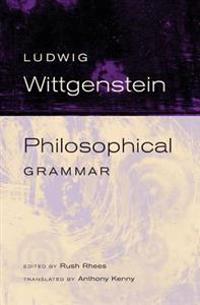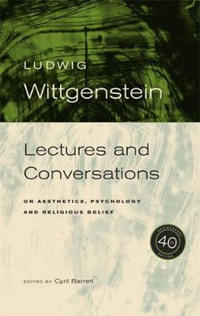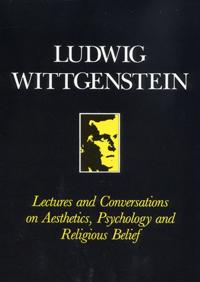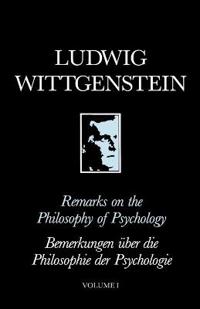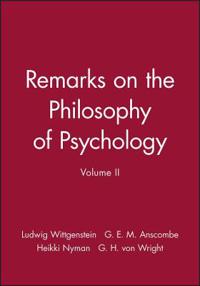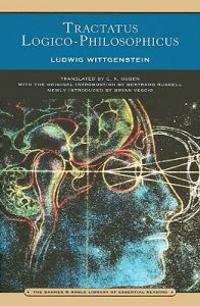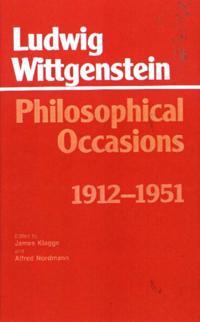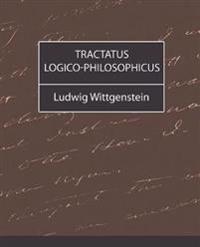Philosophical Grammar (Häftad)
avLudwig Wittgenstein
ISBN: 9780520245020 - UTGIVEN: 200506In 1933 Ludwig Wittgenstein revised a manuscript he had compiled from his 1930-1932 notebooks, but the work as a whole was not published until 1969, as Philosophische Grammatik. This first English translation clearly reveals the central place Philosophical Grammar occupies in Wittgenstein's thought [...]
Lectures & Conversations: On Aesthetics, Psychology and Religious Belief (Häftad)
avLudwig Wittgenstein, Cyril Barrett, Yorick Smythies
ISBN: 9780520251816 - UTGIVEN: 200703Zettel: 40th Anniversary Edition (Övrig)
avLudwig Wittgenstein
ISBN: 9780520252448 - UTGIVEN: 2007-03-21"Zettel", an en face bilingual edition, collects fragments from Wittgenstein's work between 1929 and 1948 on issues of the mind, mathematics, and language.[...]
The Cambridge Handbook of Violent Behavior and Aggression (Pocket)
avLudwig Wittgenstein
ISBN: 9780521607858 - UTGIVEN: 200709From a team of leading experts comes a comprehensive, multidisciplinary examination of the most current research including the complex issue of violence and violent behavior. The handbook examines a range of theoretical, policy, and research issues and provides a comprehensive overview of aggressive[...]
Lectures and conversations on aesthetics, psychology, religious belief (Pocket)
avLudwig Wittgenstein
ISBN: 9780631095804 - UTGIVEN: 197003Remarks on the foundations of mathematics (Pocket)
avLudwig Wittgenstein
ISBN: 9780631125051 - UTGIVEN: 1981-03-19This substantially revised edition of Wittgensteina s Remarks on the Foundations of Mathematics contains one section, an essay of fifty pages, not previously published, as well as considerable additions to others sections.[...]
Remarks on the Philosophy of Psychology (Häftad)
avLudwig Wittgenstein
ISBN: 9780631130611 - UTGIVEN: 198302"These two volumes must be welcomed in particular for the illumination they shed ...on Wittgenstein's already published discussions ...the characteristic deluge of examples, analogies, questions and challenges is as ever, maddening, provoking and thought-provoking, and with the earlier-published wor[...]
Remarks on the Philosophy of Psychology (Häftad)
avLudwig Wittgenstein
ISBN: 9780631130628 - UTGIVEN: 198302"Although the final remarks in this volume were written less than a fortnight before Wittgenstein's death, the work as a whole has all the forcefulness, originality and richness that characterise his greatest works. The remarks in this volume do not merely repeat points made elsewhere, nor do they[...]
Ludwig wittgenstein and the vienna circle (Häftad)
avFriedrich Waismann
ISBN: 9780631134695 - UTGIVEN: 1984-05This collection contains hitherto unknown letters exchanged between Wittgenstein and the most important of his Cambridge friends and includes editorial notes based on archival material not previously explored. * Incorporates many previously undiscovered unique and significant letters.[...]
On certainty (Pocket)
avLudwig Wittgenstein
ISBN: 9780631169406 - UTGIVEN: 1975-09-15Written over the last 18 months of his life and inspired by his interest in G E Moore's defence of common sense, this volume collects Wittgenstein's reflections on knowledge and certainty, on what it is to know a proposition for sure.[...]
Last Writings on the Philosophy of Psychology: v. 2: The Inner and the Outer, 1949-51 (Övrig)
avLudwig Wittgenstein
ISBN: 9780631189565 - UTGIVEN: 1993-10-28In the last years of his life, from 1949 to 1951, Wittgensteina s writings focused upon knowledge and certainty (collected together in On Certainty), upon colour concepts (in Remarks on Colour) and upon the relation between the "inner" and "outer", that is, between so--called mental states and bodil[...]
Culture and value (Pocket)
avLudwig Wittgenstein
ISBN: 9780631205715 - UTGIVEN: 199801Completely revised throughout, Culture and Value is a selection from Wittgensteina s notebooks ---- on the nature of art, religion, culture, and the nature of philosophical activity.[...]
Tractatus Logico-Philosophicus (Pocket)
avLudwig Wittgenstein, Bryan (INT) Vescio, C. K. (TRN) Ogden
ISBN: 9780760752357 - UTGIVEN: 2003-12Ludwig Wittgenstein is widely regarded as the most important philosopher of the twentieth century, and the "Tractatus Logico-Philosophicus" is the only book-length work of philosophy he published in his lifetime. Together, these two facts convey some idea of the power this work has exerted over the [...]
German Mysticism from Hildegard of Bingen to Ludwig Wittgenstein (Inbunden)
avAndrew Weeks
ISBN: 9780791414200 - UTGIVEN: 1993-07Philosophical Occasions, 1912-1951 (Pocket)
avLudwig Wittgenstein, James Carl Klagge, Alfred Nordmann
ISBN: 9780872201545 - UTGIVEN: 199306An indispensible resource, this collection of Wittgenstein's key shorter works -- in some cases expanded and corrected -- offers the full German text of those selections originally written in German. Highlights include 'Notes for the 'Philosophical Lecture', an essay on private language and experien[...]
Big Typescript: TS 213, German English Scholars' Edition (Häftad)
avLudwig Wittgenstein, C. Grant Luckhardt, Maximilian Aue
ISBN: 9781118346334 - UTGIVEN: 201210Long awaited by the scholarly community, Wittgenstein's so-called Big Typescript (von Wright Catalog no. TS 213) is presented here for the first time in an en-face German--English scholars' edition, complete with clear indications to help the reader identify the various levels of Wittgenstein's ed[...]
Philosophische Untersuchungen/Philosophical Investigations (Inbunden)
avLudwig Wittgenstein
ISBN: 9781405159289 - UTGIVEN: 200910Incorporating significant editorial changes from earlier editions, the fourth edition of Ludwig Wittgenstein's "Philosophical Investigations" is the definitive "en face" German-English version of the most important work of 20th-century philosophyThe extensively revised English translation incorporat[...]
Philosophical Investigations, 4th Edition (Häftad)
avLudwig Wittgenstein, Editor:P. M. S. Hacker, Edi Schulte
ISBN: 9781405159296 - UTGIVEN: 200911In this definitive new en face German-English edition, Wittgenstein experts Peter Hacker and Joachim Schulte have incorporated significant editorial changes to earlier editions of Philosophical Investigations in order to reflect more closely Wittgenstein's original intentions.[...]
Tractatus Logico Philosophicus: Logical-Philosophical Treatise (Häftad)
avLudwig Wittgenstein, Bertrand Russell
ISBN: 9781456529895 - UTGIVEN: 2011-01Tractatus Logico-Philosophicus (Häftad)
avLudwig Wittgenstein
ISBN: 9781463562915 - UTGIVEN: 201106Tractatus Logico-Philosophicus (Häftad)
avLudwig Wittgenstein
ISBN: 9781466216303 - UTGIVEN: 2011-08Ludwig Wittgenstein: An Intellectual Biography (Inbunden)
avMiles Hollingworth
ISBN: 9781472906182 - UTGIVEN: 2017-01-26Tractatus Logico-Philosophicus (Häftad)
avLudwig Wittgenstein
ISBN: 9781502551382 - UTGIVEN: 2014-09Tractatus Logico-Philosophicus (Häftad)
avLudwig Wittgenstein
ISBN: 9781604240535 - UTGIVEN: 200709Tractatus Logico-Philosophicus (Häftad)
avLudwig Wittgenstein
ISBN: 9781612039091 - UTGIVEN: 2011-05

